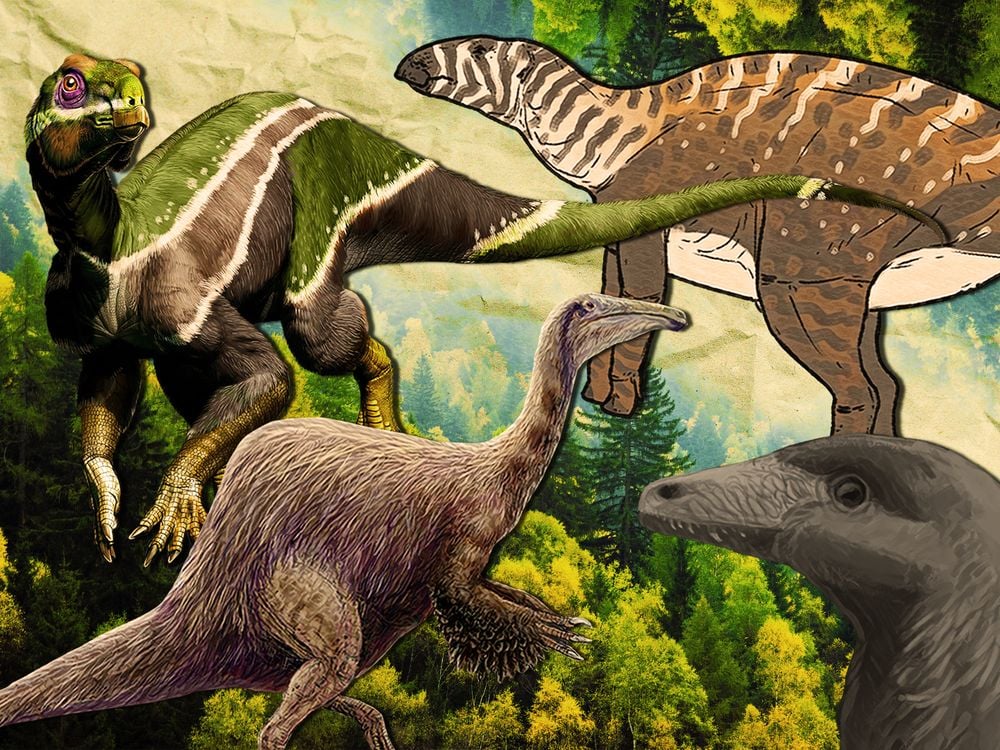Nurturing children has perpetually been a formidable undertaking. Guaranteeing the optimal growth, welfare, and security of one’s progeny demands the utilization of an impressively diverse assortment of tactics and proficiencies. This reality holds true not solely within the human sphere but equally extends to the animal kingdom. Though the particulars and hurdles may diverge significantly, animals also find themselves deeply engaged in the complex endeavor of tending to their offspring.
An article published in Discover Magazine reveals that even among dinosaurs, taking on a commendable parental role as a father or mother is not an easy task, highlighting a parallel with human experiences. Clearly, a spectrum emerges where some parents exhibit comprehensive involvement while others plainly display neglect.
The examination of preserved eggs, remains of nests, and fossilized footprints has facilitated research into how dinosaurs interacted with parenthood. These paleontological endeavors have yielded substantial insights. Yet, it is predominantly by delving into the study of specific contemporaneous creatures—namely birds and crocodiles—that paleontologists have managed to construct conjectures and frameworks.
Protectors
An illustrative instance of vigilant parenthood emerges through the behavior of oviraptors, a term that translates to “egg thief” in Latin. These creatures exhibited a remarkable level of diligence as they meticulously guarded their nests, a behavior potentially rooted in their own awareness of the presence of other would-be egg predators.
According to Paul Barrett, a paleontologist at the Natural History Museum in London, oviraptors “they sit on those nests in a very bird-like way with their bodies positioned in the center of the nest, and their arms held over the eggs to help protect them.” “They were obsessed with their eggs, no doubt,” confirms Darla Zelenitsky, a paleontologist at the University of Calgary.
During the 1970s, paleontologist Jack Horner made a significant finding in the state of Montana, USA, which he aptly named “Egg Mountain.” This vast expanse of fossilized nests unveiled a remarkable sight—numerous specimens of Maiasaura, the “duck-billed dinosaurs,” who thrived over 80 million years ago. Horner harnessed this discovery as compelling substantiation that these dinosaurs, beyond safeguarding their eggs, also exhibited a sense of nurturing by tending to the newborn hatchlings.
Through the identification of specific plant remnants, Horner gleaned insights into the feeding habits of Maiasaura dinosaurs, revealing that they directly nourished their offspring within the confines of the nest, a practice that endured for a considerable duration. Within these nests, evidence surfaced of juvenile dinosaurs spanning various sizes, indicative of parental efforts to tend to all their progeny—both the recently hatched and the more mature—over an extended span. Other species, such as the Massospondylus, a long-necked herbivorous dinosaur, and the Psittacosaurus, also appear to have adopted comparable practices.
However, everything suggests that later on, family units often disintegrated, and dinosaurs would then move in age-based groups without being supervised by their parents. “I‘m kind of doubtful that parental care extended for most dinosaurs beyond six, seven, eight or nine months[…] but not to second reproductive season,” explains David Varricchio, a paleontologist at the University of Montana. “The evidence suggests that dinosaurs were good parents, but I don’t think we had family groups.”
References
- Featured Image: Smithsonian Mag. Illustration by Emily Lankiewicz. Image Credits: Connor Ashbridge via Wikipedia under CC By-SA 4.0 / FunkMonk (Michael B.H.) via Wikipedia under CC By-SA 3.0 / Arsdraco via Wikipedia under CC By-SA 4.0 / Jorge Gonzalez
